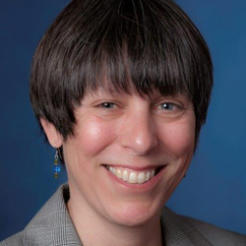Collecting and analysing more data about foundation giving at a local level is "imperative", the chief executive of the Northern Rock Foundation has said.
Speaking at the launch of the Association of Charitable Foundation’s (ACF) report on foundation giving trends on Wednesday, Penny Wilkinson, chief executive of the Northern Rock Foundation, said there was a “crucial gap” in the data that needed to be filled.
The Northern Rock Foundation, which announced last week that it was being forced to close after failing to reach a funding agreement with Virgin Money, the new owner of Northern Rock bank, began carrying out local level research on the voluntary sector in the North East and Cumbria, the areas where it funds, in 2007.
Wilkinson said: “There is a set of data not yet available that is a crucial gap that needs to be filled – where foundations are spending their money.”
The ACF’s research includes country level analysis of the percentage of its members funding in England (93 per cent), Wales (40 per cent), Northern Ireland (35 per cent) and Scotland (42 per cent), but not regionally.
It also shows that foundations gave grants of £174m to arts and culture in 2011/12, up 16 per cent on the previous year.
“It is good news for the cultural sector but what does it mean?” Wilkinson said. “Is it good news for all cultural sector organisations or just some? Is it a trend across the UK or is it concentrated in certain parts of the country and in certain types of institutions?”
She said some foundations, including Esmée Fairbairn and Garfield Weston, did report on regional levels of spending, but it was not comprehensive across the sector.
“The funding landscape is so challenging,” she said. “It is imperative now, especially if the government sees the foundation sector as a means of achieving national policy objectives.
“If it is concentrated somewhere, people tend to think it is down south, but we might be wrong, it is important for the capacity and sustainability of the voluntary sector outside those areas, it is essential for foundations to report on where as well as what they fund.”
Wilkinson also made a case for the need to “drill down” into what is funded within wide categories such as ‘older people’ and ‘social welfare’.
Top causes are health and social welfare
The ACF’s report, which was produced with the Centre for Giving and Philanthropy at Cass Business School and supported by the Pears Foundation, shows the top funding areas are health and social welfare, which are funded by 38.5 per cent of ACF members.
“I wanted to know more about the breakdown within those categories. How much is going to supporting the most vulnerable such as victims of domestic and sexual violence, refugees and asylum seekers,” she said.
As the report points out, foundations have the independence to fund neglected or unpopular causes, the projects that government agencies cannot or will not support and to challenge received wisdom. But Wilkinson questioned whether the sector knew that was happening.
Wilkinson said the individual experience of Northern Rock Foundation, which is number 48 in the top 300 UK foundations, giving £8.7m in the year to December 2012, was reflected in the trends revealed by the report.
The report shows grantmaking is up but total income has fallen. “We were faced a major reduction in income in 2011 and 2012 and decided it was important to spend capital to continue to make grants rather than reduce support,” she said. “Our trustees felt it was the right decision given the funding challenges faced by the voluntary sector and the rising need.”









